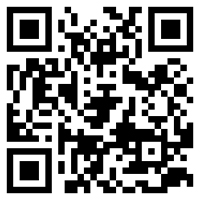当前位置: Language Tips> 新闻播报
我6岁的孩子觉得我像一个小宝宝,至少是当我说普通话的时候。最近,她对我说:“我喜欢你说中文,你的中文有点笨笨的,像一个婴儿。我喜欢婴儿。”

By Erik Nilsson
My 6-year-old thinks I’m a baby — at least when I speak Mandarin.
我6岁的孩子觉得我像一个小宝宝,至少是当我说普通话的时候。
“I like it when you speak Chinese,” she recently told me.
最近,她对我说:“我喜欢你说中文”。
“It’s a little awkward. It’s like a baby. And I like babies.”
“你的中文有点笨笨的,像一个婴儿。我喜欢婴儿。”
Chinese is the blonde, blue-eyed girl’s first language. Lily, who was born in Beijing, started to speak English later, after mixing the two tongues. (Her mother isn’t Chinese.)
中文是这个金发碧眼小女孩的母语。Lily生在北京,以前总是会把两种语言混在一起说,之后才开始说英语。(她的妈妈不是中国人)
“Baba (Daddy) eats jirou (chicken). Baba looks at xiongmaode (the panda’s) hand."
“爸爸eats鸡肉。爸爸looks at大熊猫的hand。”
By age 3, she’d separated the languages.
直到3岁,她才能区分两种语言。
Her 2-year-old brother recently acquired his first several words — nearly all Chinese.
而Lily两岁的弟弟最近也学会说话了——说的几个词几乎都是中文。
He nai (drink milk), baobao wo (hug/hold me), jiejie ku (sister is crying).
“喝奶,抱抱我,姐姐哭。”
He uses both “ball” and its Chinese equivalent, “qiu”.
他会说英语里的“ball”和中文里的“球”。
“No” is one of his few — and favorite — English words. It’s worth noting, Chinese doesn’t have a direct equivalent to “yes” and “no” but uses other grammatical constructions to affirm and negate.
“No”是他会的为数不多的几个英文单词,也是最喜欢的一个。值得一提的是,中文里没有和“yes”、“no”对应的词汇,而是用其他语法结构来表达肯定和否定。
My Chinese is perhaps less like a toddler’s and more like an immigrant’s (a concept my daughter hasn’t developed. She must soon to explain her parents.)
也许,我的中文说得并不像小孩,而更像是外来的移民。移民这个概念我的女儿还不清楚,不过她肯定很快就能替父母解释了。
I’m certified as intermediate in reading and writing, since I passed the national Chinese Proficiency Test’s Level 4 before Lily was born. (Level 6 is the highest.)
在Lily出生之前,我就通过了全国汉语水平四级考试,达到了中级读写水平。(六级为最高等级。)
And my spoken Chinese is multiplications better than my character proficiency.
我的中文口语能力比书面表达能力好太多。
I can converse about, say, (basic) economics but with grammatical flubs, tone errors and a funny accent. The second two are common among native Chinese with less-than-perfect Putonghua (standardized Mandarin).
我可以谈论基本的经济学,但是有语法错误,声调错误,口音滑稽。而后面两个问题在普通话不标准的中国人中也很常见。
There’s a theory that language shapes how we perceive the world.
有一种理论认为,语言决定了我们看待世界的方式。
I’ve observed, for instance, that after using only Chinese for a period, two things happen.
比如说,我发现,在讲中文一段时间后发生了两件事。
First, I start to think simple thoughts in Chinese. I notice because I sometimes talk to myself. Say I’m traveling and haven’t spoken English in days — I’ll mutter “Wode shouji zai nali?” rather than “Where’s my phone?”.
第一是我开始用中文来表达一些简单的想法。因为我有时会自言自语,所以注意到了这点。比如我在旅行时几天没说英语了,我会嘟囔着“我的手机在哪里?”而不是“Where is my phone”。
Second, I think about the world differently in such ways as, in my mind’s eye, “opening” rather than turning on the light — a direct translation into English that retains the Chinese language’s conceptualization of the phenomenon.
第二,我开始用不同的角度感知世界,比如,我会想到“opening”而不是“turning on”电灯,这就是直译成英文,保留了中文语言对开灯这一动作的概念。
I was wondering how this works for Lily, since she’s a native speaker of both but acquired Chinese first.
我想知道Lily是不是也有这种感受,因为中英文都是她的母语,只是她先学会了中文。
She says she only thinks in English and translates in her head.
她说她只用英文思考,然后在脑子里翻译出来。
She claims to never dream in Chinese, which I sometimes do.
她说自己从来不会做说中文的梦,而我有时候会这样。
That seems counterintuitive.
这似乎和直觉相悖。
She told me in English the other morning: “I’m not afraid of the cold. I’m afraid of being hot.”
某天早上,她用英语告诉我:“I'm not afraid of the cold. I'm afraid of being hot.(我不怕冷,我怕热)。”
This is a direct translation into English. Chinese typically conveys an aversion to temperature extremes using the word for fear (pa), rather than a synonym for dislike.
这句话是直译成英文的。中文中通常用“怕”这个词传达对极端温度的厌恶,而不是用“不喜欢”之类的同义词。
And I’ve noticed how our family mixes the languages at home.
而且我注意到我们在家里也会混合两种语言。
I’ll ask my wife: “Mind if I kai (open) the kongtiao (air conditioner)? Did you mai (buy) the piao (tickets)?”
我会问我的妻子:“Mind if I开空调?Did you买票?”(介意我开空调吗?你买票了吗?)
My daughter only calls me Baba— never Daddy — whichever language or mix we’re using.
不过,不论我们用哪种语言交流或是混合使用,我的女儿只叫我“爸爸”,从来不会叫“Daddy”。
That said, I’m still a baby to her.
虽说如此,和她相比,我的中文依然是婴儿水平。
Perhaps I am —in the way of rediscovering the world like children do, through another language. It’s like “opening” the light that illuminates a new perspective.
或许我现在就如小孩一般,通过另一种语言重新认识这个世界。就像是“开”了盏灯,照亮一个全新的视角。
英文来源:“CHINA DAILY”微信公众号
翻译:王嘉腾(实习)
编审:丹妮 董静
音频编辑:唐晓敏
更多内容请关注“CHINA DAILY”微信公众号:

Broadcaster

Erik Nilsson is an American journalist who has worked in China for over 10 years. His work has won various honors, including the Chinese Government Friendship Award - the highest honor the country bestows on foreigners. He has traveled to every provincial-level jurisdiction except Chongqing and Guangdong, covering such stories as the Wenchuan and Yushu earthquakes, nomadic communities’ development and civil society.
上一篇 : 老外在中国:自动扶梯有必要左行右立吗?
下一篇 :
关注和订阅

电话:8610-84883645
传真:8610-84883500
Email: languagetips@chinadaily.com.cn